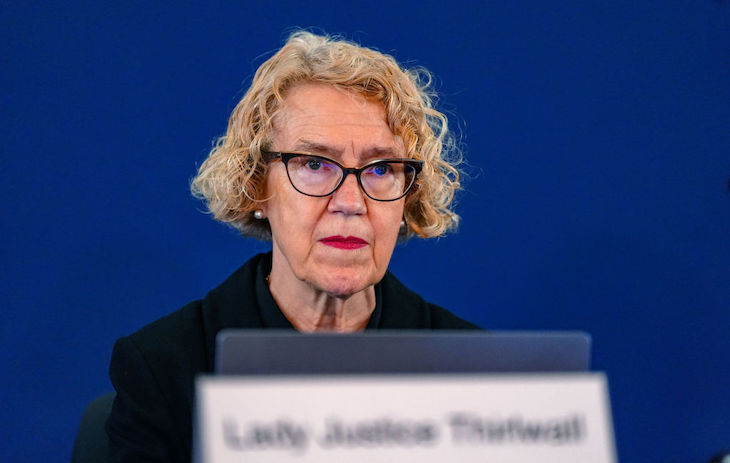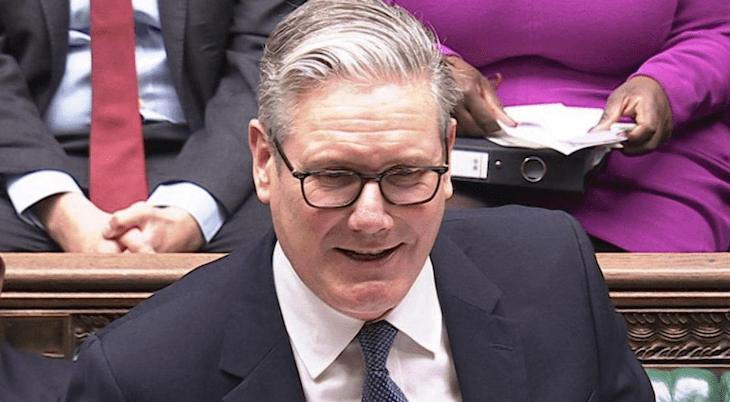When Lucy Letby was convicted last year of murdering seven infants and attempting to kill seven others it seemed that the parents of her victims had at last secured justice. But in recent months, Letby’s crimes – for which she is serving 15 whole-life sentences – have become the subject of heated debate. Victims’ families have said that the campaign to free the killer nurse has made them question humanity.
‘All of this noise has caused enormous additional distress to the parents who have already suffered far too much’
Letby’s crimes are now, once again, back in the headlines, as the public inquiry set up to examine what happened at the Countess of Chester Hospital during the time Letby worked there is now formally underway. It is being led by Lady Justice Kathryn Thirlwall, and will examine how Letby was able to carry out the murders of a number of babies at the hospital’s neonatal unit in 2015 and 2016. A court order prohibits reporting of the identities of the surviving and dead children involved in the case.
Opening the proceedings at Liverpool Town Hall, Thirlwall told the inquiry yesterday that a ‘huge outpouring of comment’ over the convictions of Letby has caused ‘enormous additional distress’ to the parents of her victims. She said the investigation bears her surname so that the parents do not repeatedly see the name of person convicted of harming their babies.

In May, Letby lost her Court of Appeal bid to challenge her convictions from the first trial which took place between October 2022 and August 2023. Referring to that judgment, Lady Justice Thirlwall said: ‘That judgment marked a watershed. At last the parents had finality, or so it seemed. But it was not to be. In the months that followed… there has been a huge outpouring of comment from a variety of quarters on the validity of the convictions. As far as I am aware it has come entirely from people who were not at the trial. Parts of the evidence has been selected and there has been criticism of the defence at the trial. All of this noise has caused enormous additional distress to the parents who have already suffered far too much. It is not for me to set about reviewing the convictions. The Court of Appeal has done that with a very clear result. The convictions stand.’
Thirwall said the babies who died, or were injured, would be at the ‘heart of the inquiry’. The hearing is due to cover three broad areas: the experiences of the victims’ parents; the conduct of the staff at the hospital with regard to Letby when she was employed there; and the wider effectiveness of NHS management and the relationship between various professional groups, and how these affect the safety of newborns in neonatal units.
Letby’s convictions are outside the remit of the inquiry. The judge’s comments at the start of the long-awaited inquiry come after widespread reports casting doubt on the safety of the Letby verdict. For several months, experts in fields ranging from neonatology to statistics have questioned the evidence against the nurse and how it was presented to the court. Some have called on the government to postpone or change the terms of the inquiry over the concerns.
Rachel Langdale KC, counsel to the inquiry, in her opening statement, compared Letby to Harold Shipman, Britain’s most prolific serial killer, who was responsible for more than 200 deaths. Both, she said, were ‘deceptive, manipulative and skilled at hiding in plain sight’.
Langdale also made reference to nurse Beverley Allitt, another serial killer. Allitt was convicted of four charges of murder and three of attempted murder at the Grantham and Kesteven Hospital in Lincolnshire in the early 1990s. Langdale said that Letby would have studied Allitt’s crimes as part of her child nursing training course.
In other evidence, an email from Letby’s nursing boss sent in May 2016 spoke of concern at a possible ‘staff trend’ in deaths on the neonatal unit and said the issue was ‘potentially very serious’. The following month, the deaths of two out of three triplet brothers pushed Letby and neonatal mortality to the top of the executive team’s agenda. In July 2016, Letby was moved to non-clinical duties, but in the following months she opened a grievance procedure against the hospital trust. She was told she could return to the neonatal unit, and in January 2017, she incorrectly emailed staff that she had been ‘fully exonerated’ following an investigation.
The first week of the inquiry, which continues today, will hear opening statements from counsel and from legal representatives of the families of Letby’s victims. The inquiry is then expected to take evidence from witnesses, including nursing staff and doctors at the Countess hospital. Hearings are due to continue until early 2025 and Lady Justice Thirlwall said that she expected to publish her findings by the end of the following autumn. Let’s hope that, at last, the families of Letby’s many victims get some closure as they attempt to rebuild their lives.








Comments